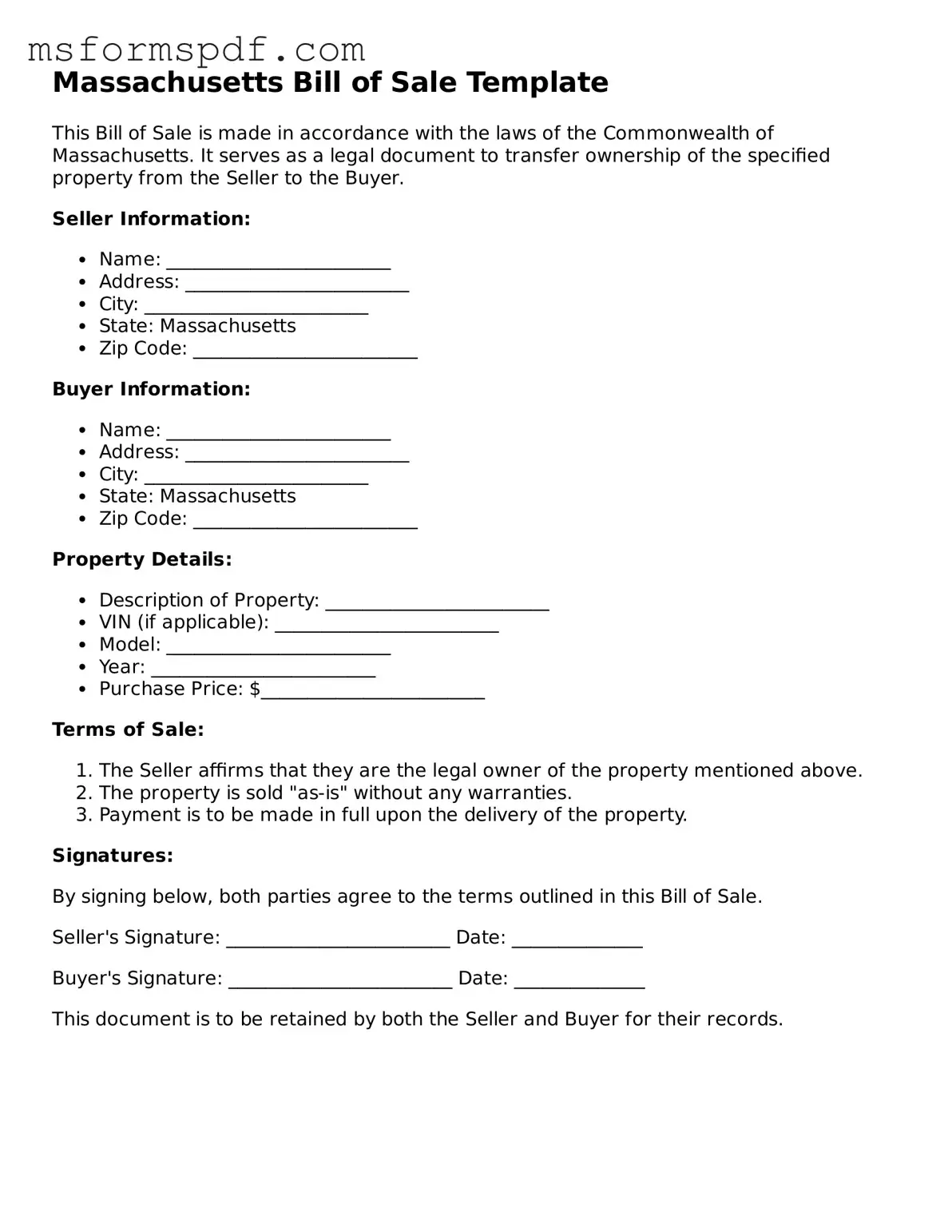Blank Massachusetts Bill of Sale Document
The Massachusetts Bill of Sale form is a legal document that serves as proof of the transfer of ownership of personal property from one individual to another. This form is essential for various transactions, including the sale of vehicles, boats, and other valuable items. By documenting the sale, both the buyer and seller can protect their rights and ensure a smooth transfer of ownership.
Launch Editor Now

Blank Massachusetts Bill of Sale Document
Launch Editor Now

Launch Editor Now
or
➤ Bill of Sale PDF Form
Just a moment — finish the form
Fill out Bill of Sale digitally — no scanning, no printing.